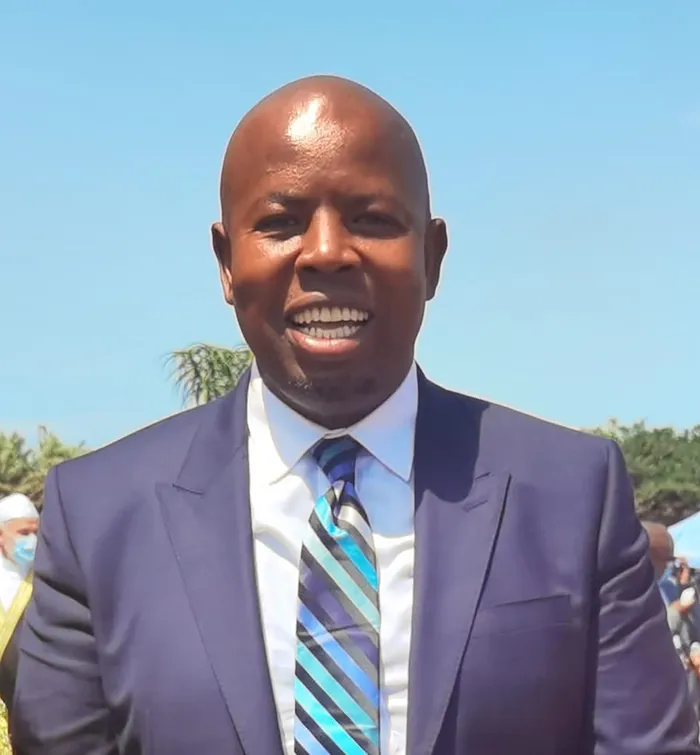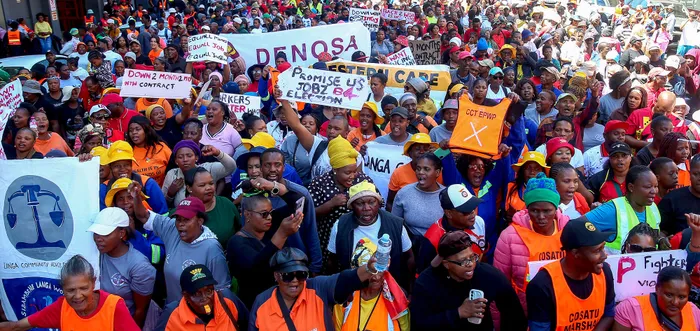Basic Income Grant is a brilliant idea but is not affordable

Councillor Nkosenhle Madlala is the Chairperson of the Governance and Human Capital Committee in the eThekwini Municipality.
Image: Supplied
IN A country beset by structural unemployment, grinding poverty, and widening inequality, the promise of a guaranteed monthly income in the form of a Basic Income Grant is hard to argue against.
But when we set aside the moral arguments and confront the harsh fiscal realities of South Africa, one uncomfortable truth emerges: introducing a Basic Income Grant, at any meaningful level, is simply not sustainable, not without addressing the deeper structural leakages in our economy.
Unlike countries blessed with vast sovereign wealth funds, think Norway’s oil reserves. South Africa lacks a national savings pool. Our mineral riches have been dug up and sold, but little of that wealth has been ring-fenced for the nation’s future. Instead of feeding a public fund, the proceeds of our natural resources have flowed into private coffers, often leaving our shores entirely.
The country’s state-owned enterprises, which in theory could have been our sovereign wealth creators, have become fiscal burdens. Year after year, government bailouts have poured into failing entities, draining public resources that might otherwise fund social grants or public services.
But even more concerning are the hidden drains on our national wealth: the money that never even enters the state’s coffers. Illicit financial flows – from trade mis-invoicing to profit shifting by multinational corporations – rob South Africa of billions of rands each year. Our mining sector, long the backbone of our economy, is also one of the main culprits when it comes to profit shifting and transfer pricing manipulation. These lost revenues represent money that could have funded hospitals, schools, and yes – a Basic Income Grant.
Alongside these illicit flows is the problem of over-financialisation. South Africa’s economy has increasingly been captured by the financial sector. Capital chases returns in speculative markets, rather than being invested in industries that create real jobs. Banks and financial services dominate our economic landscape, while factories close and farms lie fallow. This imbalance starves the real economy of investment and leaves millions unemployed – while wealth accumulates in the hands of those who already have it.

Cosatu and civil society organisations protesting to address the country’s high unemployment rate and to implement a basic income grant, among other demands.
Image: Leon Lestrade / Independent Newspapers Archive
Further compounding this structural crisis is the fact that many of our largest companies – once proudly South African – are now listed overseas. From Anglo American to Naspers, major firms have shifted their primary listings offshore. While profits soar, dividends flow abroad, and South Africa’s tax authorities are left picking at scraps.
What does all of this mean for the Basic Income Grant?
It means that even if government had the political will to introduce it, South Africa simply does not have the fiscal foundation to sustain it. Without a sovereign wealth fund, with billions bleeding through illicit financial flows, with an over-financialised economy that prioritises speculation over production, and with large corporates paying taxes elsewhere, where would the money come from?
South Africa’s tax base is already perilously narrow. A mere seven million taxpayers carry a nation of over 60 million people. The idea that this small base could shoulder the weight of a universal income grant is not only optimistic – it is economically reckless.
This is not to say that the poor should be told to wait while wealth reforms inch forward. But we must be honest: a Basic Income Grant at scale, introduced under current conditions, risks being a short-term political fix that creates a long-term fiscal crisis.
So, what is to be done?
The answer is as uncomfortable as it is necessary. Before we can talk about sustainable large-scale redistribution, we must reclaim control over our national wealth.
Government must get serious about closing illicit financial flows. SARS needs the resources and political backing to pursue multinationals that shift profits out of the country. Our mineral wealth must be taxed fairly and transparently, with extraction levies channelled into a future-focused sovereign fund.
We need to curb the excesses of financialisation, directing capital towards productive industries that create jobs, rather than speculative bubbles that enrich a few. And we must reconsider the offshore bias of our corporates, finding ways to tax their global profits fairly and equitably.
In the meantime, expanding targeted relief – such as the Social Relief of Distress Grant – may provide a stopgap for the most vulnerable, while reforms are put in place.
A Basic Income Grant is a noble idea. It is an idea whose time should come. But that time is not now, not in a country haemorrhaging its own wealth, and not without the political courage to confront the powerful interests that profit from the status quo.
Until then, promising a Basic Income Grant without securing the foundations to fund it is not compassion – it is a dangerous illusion.
Councillor Nkosenhle Madlala is the Chairperson of the Governance and Human Capital Committee in the eThekwini Municipality.
He writes in his personal capacity.
Related Topics: